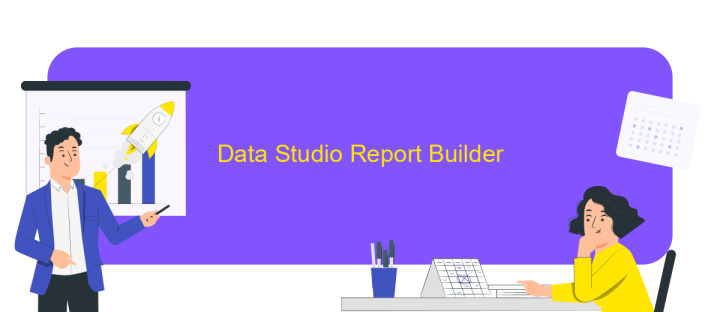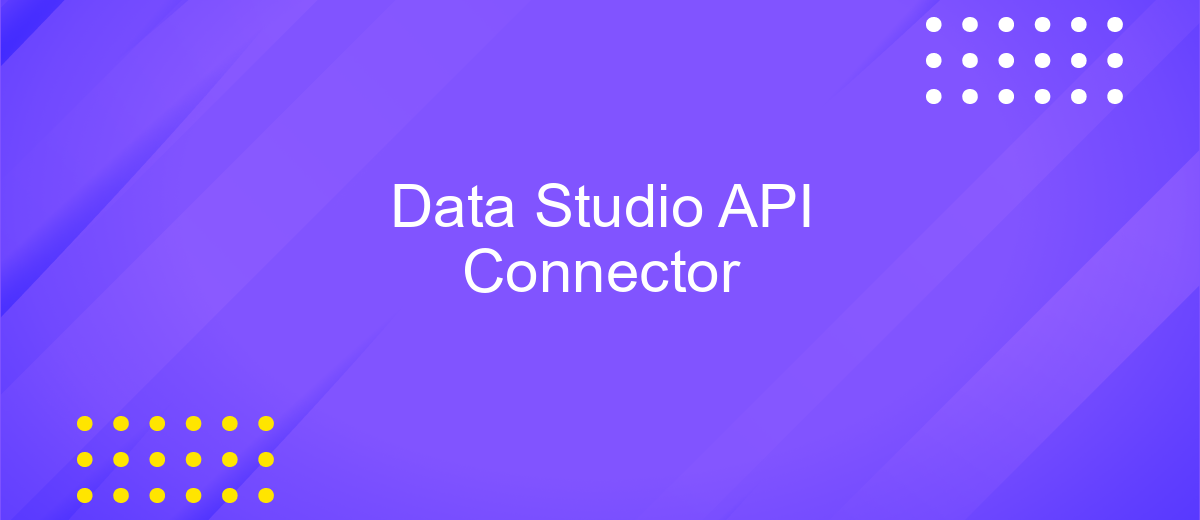Data Studio API Connector
The Data Studio API Connector is a powerful tool that enables seamless integration of various data sources into Google Data Studio, allowing users to create dynamic and interactive reports. By leveraging this connector, businesses can automate data retrieval, streamline reporting processes, and make data-driven decisions with ease. This article explores the key features, benefits, and practical applications of the Data Studio API Connector, guiding you through the setup process and best practices for optimal performance.
Overview
The Data Studio API Connector is a powerful tool designed to streamline the process of integrating and visualizing data from various sources. By leveraging this connector, users can effortlessly pull data into Google Data Studio, enabling more dynamic and interactive reports. This tool is particularly beneficial for businesses and analysts seeking to enhance their data-driven decision-making processes.
- Seamless integration with multiple data sources.
- Customizable data visualization options.
- Real-time data updates for accurate reporting.
- User-friendly interface for easy navigation.
- Enhanced security to protect sensitive information.
By utilizing the Data Studio API Connector, organizations can achieve a higher level of data transparency and accessibility. Its intuitive design and robust functionalities make it an essential component for anyone looking to harness the full potential of their data. Whether for marketing, finance, or operations, this connector provides the flexibility and efficiency needed to transform raw data into actionable insights.
Connecting to Data Sources

Connecting to data sources using the Data Studio API Connector is a straightforward process that empowers users to seamlessly integrate various datasets into their reports. To begin, navigate to the Data Studio interface and select the option to add a new data source. The platform offers a range of connectors, including Google Sheets, BigQuery, and MySQL, among others. Users can choose the appropriate connector based on their data storage preferences. Once a connector is selected, users are prompted to authenticate and authorize access, ensuring secure data retrieval.
For those looking to streamline integrations, services like ApiX-Drive offer valuable assistance. ApiX-Drive simplifies the connection process by providing pre-configured templates and automation features that eliminate the need for extensive coding knowledge. Users can quickly set up automated data transfers between their preferred applications and Data Studio, ensuring that their reports are always updated with the latest information. By leveraging these tools, users can focus more on analyzing data rather than dealing with the complexities of data integration, ultimately enhancing productivity and decision-making capabilities.
Data Studio Report Builder

The Data Studio Report Builder is an intuitive tool that allows users to create dynamic and interactive reports with ease. By leveraging the capabilities of Google's Data Studio, users can transform raw data into visually appealing dashboards that provide valuable insights. This tool is designed to be user-friendly, making it accessible to both beginners and experienced data analysts.
- Connect your data sources: Start by linking your data sources to Data Studio. This can include Google Analytics, Google Sheets, or any other compatible data source.
- Create a new report: Once your data sources are connected, create a new report by selecting the desired template or starting from scratch.
- Customize your report: Use the drag-and-drop interface to add charts, tables, and other visual elements. Customize the appearance and layout to suit your needs.
- Share and collaborate: After building your report, share it with team members or stakeholders. Data Studio allows for real-time collaboration, ensuring everyone stays updated.
With the Data Studio Report Builder, transforming complex datasets into actionable insights becomes a seamless process. The tool's flexibility and integration capabilities make it an essential asset for data-driven decision-making. Whether you are tracking marketing performance or analyzing sales trends, Data Studio empowers you to visualize data in meaningful ways.
Best Practices

When working with the Data Studio API Connector, it's crucial to maintain a clear understanding of your data sources and their structures. This ensures that the information you pull into your reports is accurate and relevant. Familiarize yourself with the API documentation and any limitations it may have, to avoid unexpected issues during data retrieval.
Optimize your data queries by selecting only the fields you need. This not only speeds up the data retrieval process but also reduces the load on your data source, making your reports more efficient. Additionally, always test your queries with smaller datasets to ensure accuracy before scaling up.
- Regularly update and review your API credentials to maintain security and access.
- Implement error handling to manage any potential disruptions or API changes.
- Document your API connections and configurations for future reference and team collaboration.
By adhering to these best practices, you can enhance the reliability and performance of your Data Studio reports. This proactive approach not only saves time but also ensures that your data visualizations are both effective and insightful, empowering informed decision-making within your organization.
- Automate the work of an online store or landing
- Empower through integration
- Don't spend money on programmers and integrators
- Save time by automating routine tasks
Troubleshooting
If you're experiencing issues with the Data Studio API Connector, first ensure that your API credentials are correct. Double-check the API key and any other authentication details to confirm they match the requirements of the Data Studio. Incorrect credentials can prevent successful data retrieval and integration. Additionally, verify that your API endpoint is accessible and that there are no network restrictions blocking access. Firewalls or proxy settings may need adjustment to allow seamless communication.
Another common issue is data mismatches or discrepancies. Ensure that the data structure and format from your source align with what Data Studio expects. If you're integrating multiple data sources, consider using a service like ApiX-Drive to streamline the process. ApiX-Drive can help automate the data transfer, ensuring consistency and reducing manual errors. If problems persist, consult the API documentation for any updates or changes that might affect your integration. Regularly reviewing error logs can also provide insights into specific issues, aiding in quicker resolutions.
FAQ
What is a Data Studio API Connector?
How do I set up an API Connector in Data Studio?
Can I automate data updates using an API Connector?
What are the benefits of using an API Connector in Data Studio?
Are there any tools available to simplify the integration of APIs with Data Studio?
Routine tasks take a lot of time from employees? Do they burn out, do not have enough working day for the main duties and important things? Do you understand that the only way out of this situation in modern realities is automation? Try Apix-Drive for free and make sure that the online connector in 5 minutes of setting up integration will remove a significant part of the routine from your life and free up time for you and your employees.


